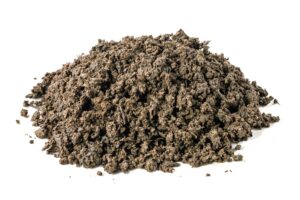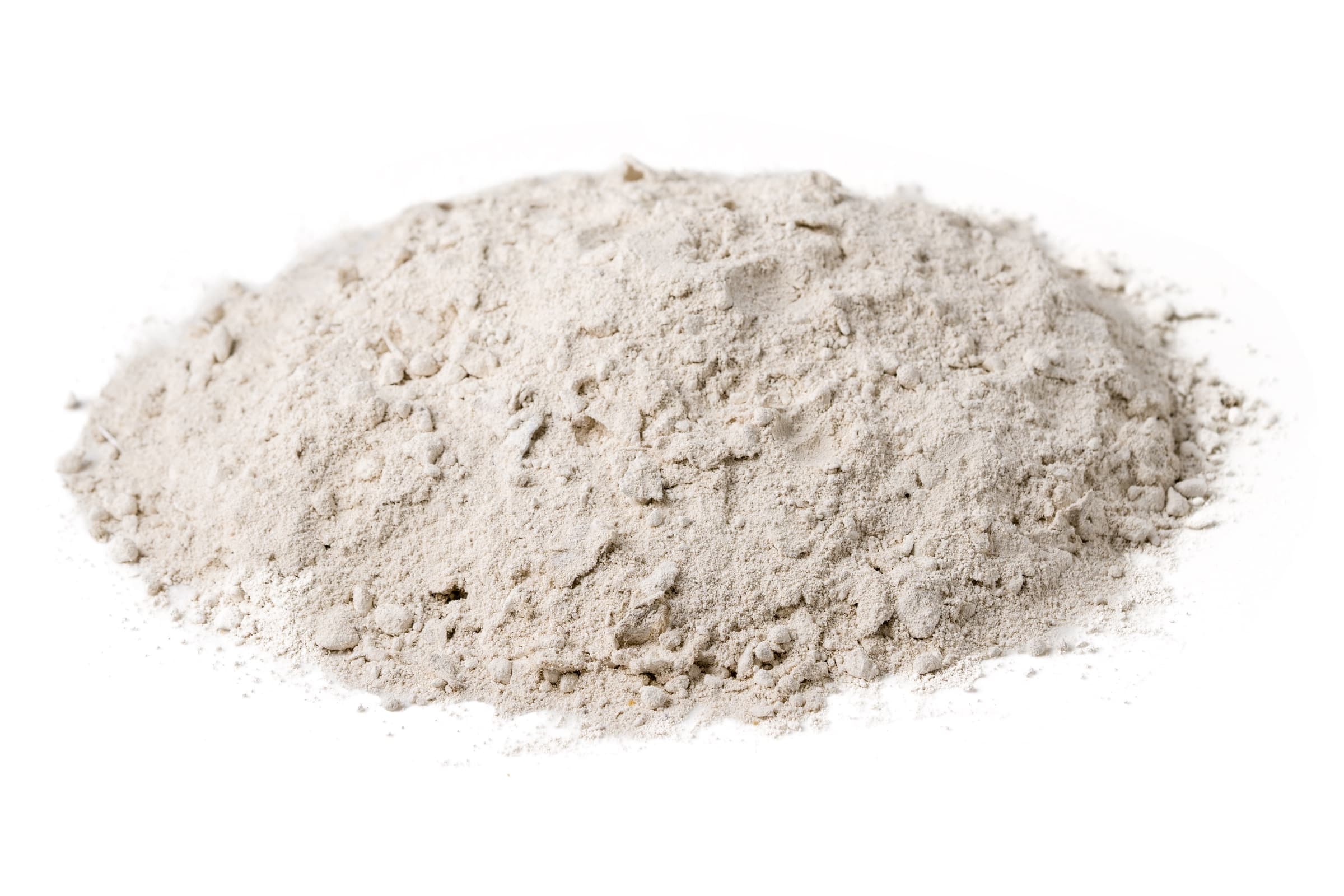Used as a soil improver, working to improve the drainage and the physical structure of heavy, clay soils.
Applications
Soil Structure Improvement: Gypsum has the ability to flocculate, or bind together, small soil particles into larger aggregates. This results in improved soil structure, which enhances water infiltration and reduces soil compaction. Better soil structure allows plant roots to penetrate more easily and improves aeration.
Enhanced Water Infiltration: Gypsum-treated soil is more porous and allows water to penetrate the surface more quickly. This is particularly beneficial in clay soils that tend to compact and form a hard surface, preventing water from soaking in.
Reduced Soil Erosion: Improved soil structure and enhanced water infiltration resulting from gypsum application help reduce erosion by allowing rainwater to soak into the soil rather than running off the surface.
Nutrient Availability: Gypsum can help improve the availability of certain nutrients, particularly calcium and sulfur. These elements are essential for plant growth and development. Gypsum’s presence in the soil can also prevent nutrient leaching by promoting better nutrient retention.
pH Adjustment: Gypsum is neutral in pH and can be used to amend soil with high or low pH levels. It doesn’t significantly change the soil’s pH but can help stabilise it in the desired range for optimal nutrient availability.
Alleviation of Soil Salinity: Gypsum can help improve soil structure in saline soils by displacing sodium ions and preventing their negative impact on soil structure. This can be particularly important in areas with saline or sodic soils.
Enhanced Root Growth: Gypsum-treated soils offer better aeration, moisture retention, and nutrient availability, which are conducive to healthy root growth. This results in stronger plants with improved resilience.
Improved Crop Yields: The combination of improved soil structure, better water infiltration, and nutrient availability can lead to increased crop yields, making gypsum application valuable in agricultural settings.
Environmental Benefits: Gypsum is a naturally occurring mineral and poses minimal environmental risks. Its application can reduce the need for chemical soil amendments, promoting more sustainable agricultural practices.
Soil Reclamation: Gypsum can be used in land reclamation projects to improve soil conditions in areas that have been degraded due to mining, construction, or other activities.
Soil Fertility and Microbial Activity: Improved soil structure and nutrient availability due to gypsum application can enhance microbial activity in the soil, promoting nutrient cycling and contributing to overall soil health.
Benefits
It’s important to note that gypsum is most effective in soils that are deficient in calcium and sulfur or in soils with specific structural issues. Before applying gypsum, conducting a soil test and understanding the specific needs of your soil and plants is recommended to ensure that the benefits of gypsum application will be realised.
Products
More like this

Organic Soil Improver
Organic soil improvers, often referred to as soil amendments or conditioners, are materials added to soil to enhance its structure, fertility, water-holding capacity, and overall health. They can be derived from organic sources such as...

Mushroom Compost
Mushroom compost, also known as mushroom soil or mushroom substrate, is a type of organic material that’s a byproduct of mushroom cultivation. It’s composed of various organic materials that have been used to grow mushrooms,...

Case
studies

Normark
Established in 1977, Normark are a second generation family business specialising in landscape design and construction across Melbourne. "From inner-city Melbourne courtyards to large commercial open spaces, Normark will deliver."

Normark
Established in 1977, Normark are a second generation family business specialising in landscape design and construction across Melbourne. "From inner-city Melbourne courtyards to large commercial open spaces, Normark will deliver."

Normark
Established in 1977, Normark are a second generation family business specialising in landscape design and construction across Melbourne. "From inner-city Melbourne courtyards to large commercial open spaces, Normark will deliver."

Normark
Established in 1977, Normark are a second generation family business specialising in landscape design and construction across Melbourne. "From inner-city Melbourne courtyards to large commercial open spaces, Normark will deliver."

Normark
Established in 1977, Normark are a second generation family business specialising in landscape design and construction across Melbourne. "From inner-city Melbourne courtyards to large commercial open spaces, Normark will deliver."



